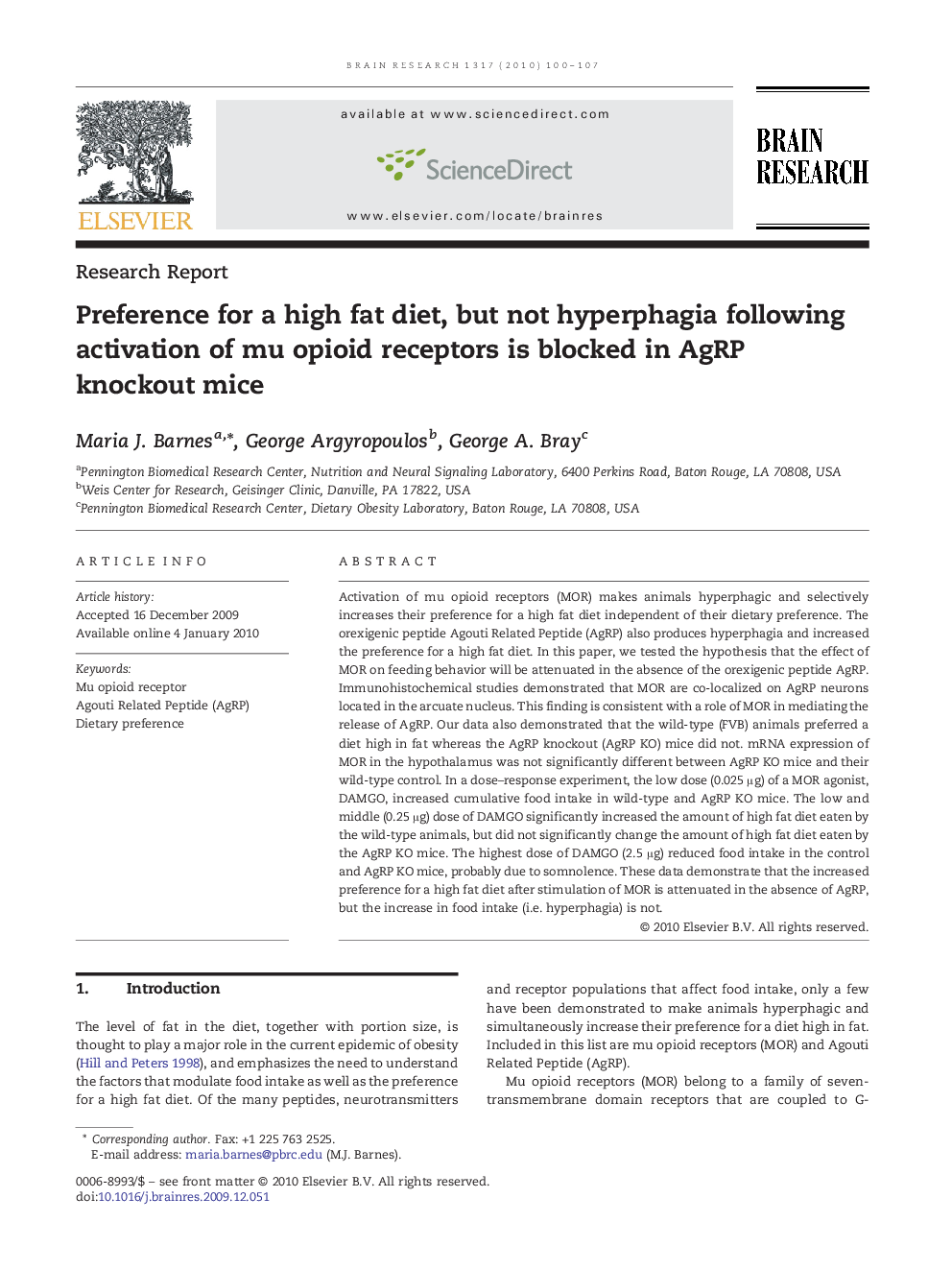| کد مقاله | کد نشریه | سال انتشار | مقاله انگلیسی | نسخه تمام متن |
|---|---|---|---|---|
| 4327428 | 1614122 | 2010 | 8 صفحه PDF | دانلود رایگان |

Activation of mu opioid receptors (MOR) makes animals hyperphagic and selectively increases their preference for a high fat diet independent of their dietary preference. The orexigenic peptide Agouti Related Peptide (AgRP) also produces hyperphagia and increased the preference for a high fat diet. In this paper, we tested the hypothesis that the effect of MOR on feeding behavior will be attenuated in the absence of the orexigenic peptide AgRP. Immunohistochemical studies demonstrated that MOR are co-localized on AgRP neurons located in the arcuate nucleus. This finding is consistent with a role of MOR in mediating the release of AgRP. Our data also demonstrated that the wild-type (FVB) animals preferred a diet high in fat whereas the AgRP knockout (AgRP KO) mice did not. mRNA expression of MOR in the hypothalamus was not significantly different between AgRP KO mice and their wild-type control. In a dose–response experiment, the low dose (0.025 μg) of a MOR agonist, DAMGO, increased cumulative food intake in wild-type and AgRP KO mice. The low and middle (0.25 μg) dose of DAMGO significantly increased the amount of high fat diet eaten by the wild-type animals, but did not significantly change the amount of high fat diet eaten by the AgRP KO mice. The highest dose of DAMGO (2.5 μg) reduced food intake in the control and AgRP KO mice, probably due to somnolence. These data demonstrate that the increased preference for a high fat diet after stimulation of MOR is attenuated in the absence of AgRP, but the increase in food intake (i.e. hyperphagia) is not.
Journal: Brain Research - Volume 1317, 4 March 2010, Pages 100–107